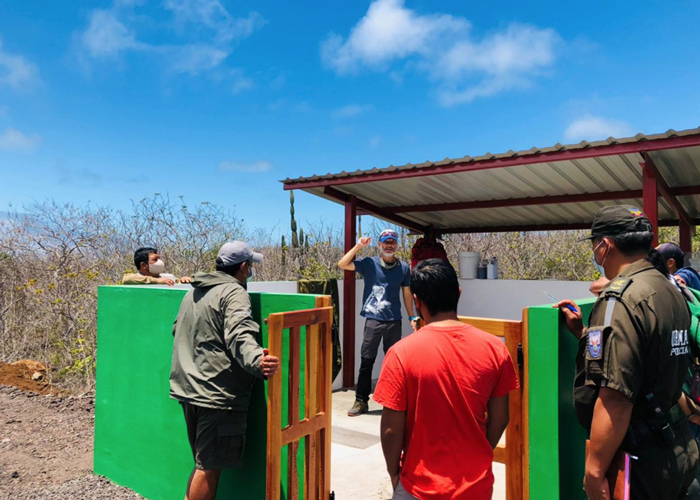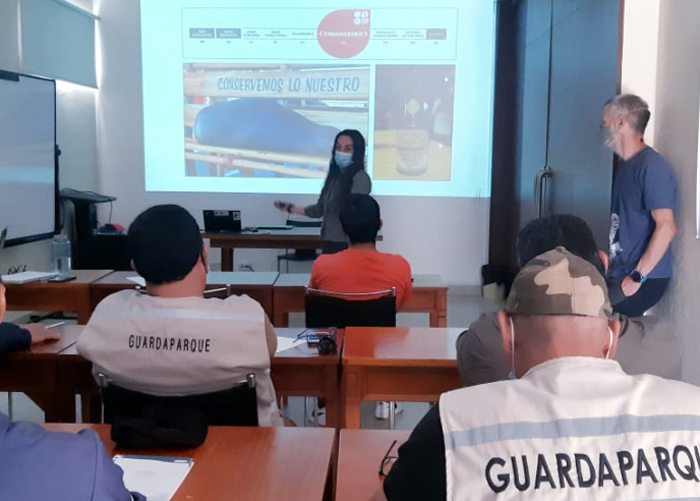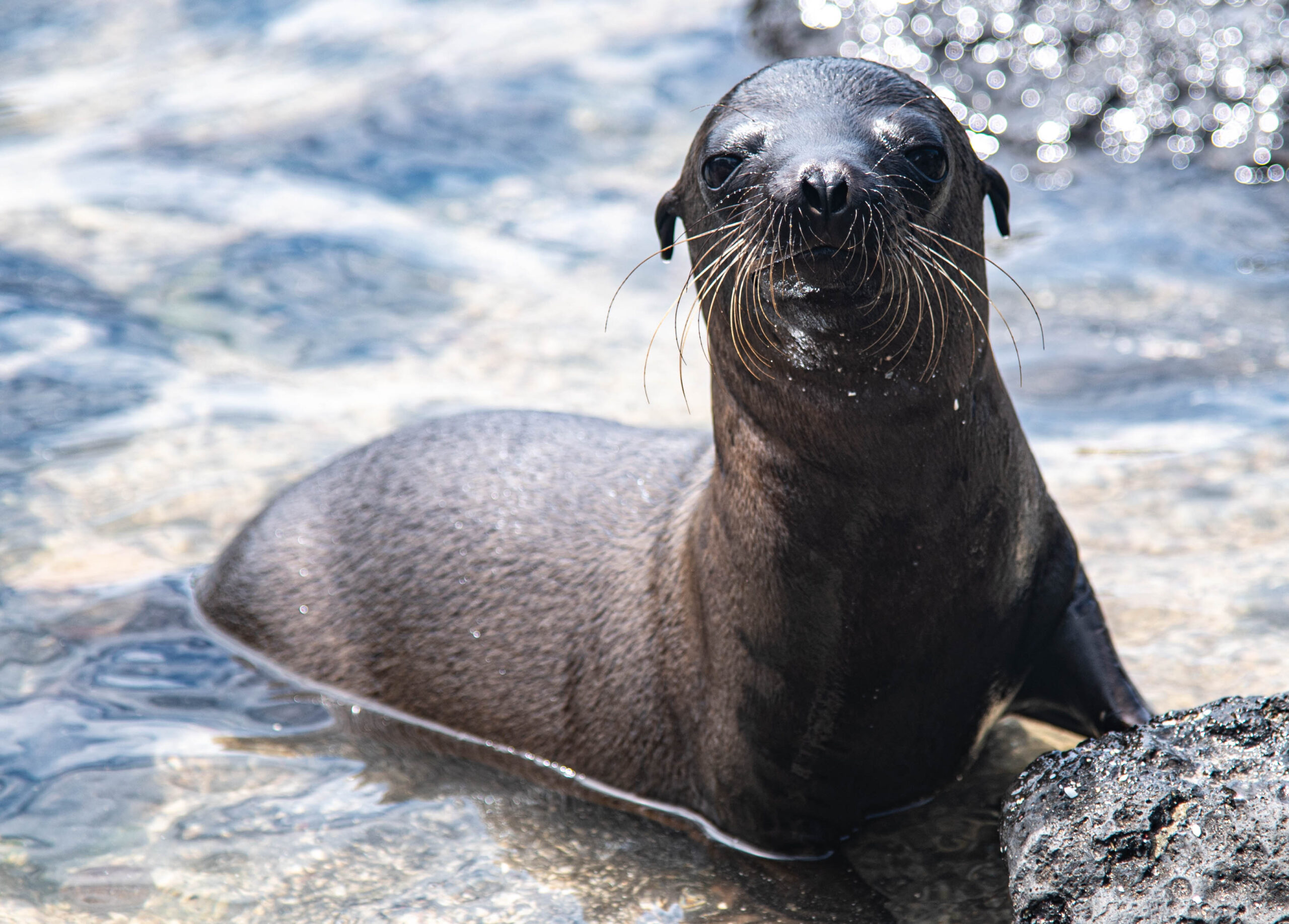Como primer paso hacia esta alianza, el GSC y el Hospital Veterinario TUERI de la Universidad San Francisco de Quito (USFQ) colaboraron recientemente en un taller titulado “Atención veterinaria primaria y manejo de lobos marinos” en San Cristóbal, Galápagos. El objetivo de este taller fue crear y fortalecer las capacidades de las personas cuyas principales funciones son rescatar, contener y manejar la vida silvestre.
Asistieron muchas partes interesadas, incluidos los guardaparques del Parque Nacional Galápagos, miembros de la Unidad de Protección Ambiental (UPMA) de la Policía Nacional y personal de GSC. El taller, dirigido por los veterinarios Eduardo Díaz y Carolina Sáenz de TUERI, brindó antecedentes relacionados con la atención veterinaria primaria de lobos marinos e incluyó una visita al centro de rehabilitación del Parque Nacional Galápagos para comprender mejor los criterios técnicos para el manejo estos animales en cautiverio.
“Ha sido una experiencia enriquecedora poder contribuir con las diferentes instituciones que trabajan por la conservación y el bienestar de estos increíbles animales. Que sea el comienzo de muchos proyectos. Cuando varias personas se unen por un mismo ideal, los resultados son incalculables”, dijo Carolina Sáenz.

La organización de estos talleres mejorará la protección de los lobos marinos de Galápagos, una especie endémica clasificada por la Unión Internacional para la Conservación de la Naturaleza (UICN) como en peligro de extinción y posiblemente uno de los animales más carismáticos de las islas.
“Gracias a GSC, Parque Nacional Galápagos y UPMA por su participación en el primer taller de atención primaria y manejo de lobos marinos, ojalá, un nuevo punto de partida para la conservación de la vida silvestre de Galápagos”, concluyó Eduardo Díaz.
Juntos, el GSC y la Dirección del Parque Nacional Galápagos esperan continuar desarrollando las instalaciones de rehabilitación de vida silvestre y la programación para ayudar no solo a los leones marinos, sino a muchas otras especies en Galápagos en los próximos años.






